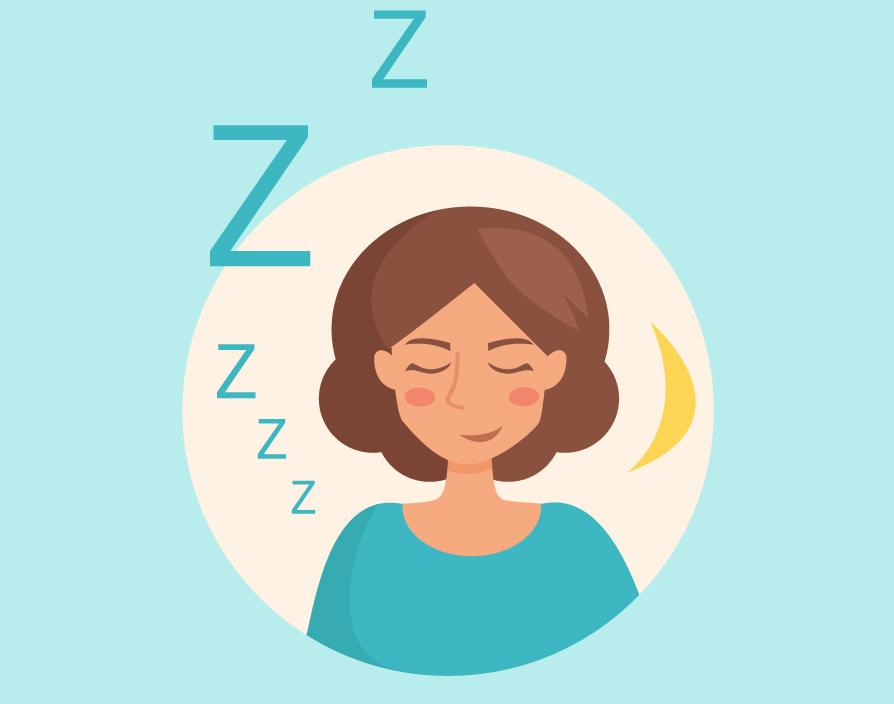Franchisors are no strangers to burning the candle at both ends. But we often get so caught up trying to power through our to-do lists that we end up losing sleep and being less, not more, productive. In fact, according to Rand Europe, the independent research institute, sleep deprivation costs the British economy an estimated £40m pounds a year.
When I’m particularly stressed and have a lot on my mind, it affects my sleep. I never struggle to nod off but I often wake up during the night and end up lying awake and thinking a million thoughts into the very early hours. Last Wednesday, for example, I went to bed at 10:45pm but woke at 2am and just couldn’t go back to sleep. I had a cup of tea and wrote everything that was on my mind down on a piece of paper but nothing did the trick. I eventually gave up trying at 3:15am and started working. And boy was I feeling the effects by 3pm the next day. I wasn’t as productive as I could have been that afternoon. Everything seemed to require so much more time and concentration than usual so my poor night’s sleep affected my entire day and, ultimately, my business.
Using the time you have at work efficiently is so important. If you and your staff are overworked and under-rested, you’re more likely to be unproductive and tasks will require more manpower. It could even lead to costly mistakes that need fixing. As a business leader, it’s important to set an example and recognise that prioritising sleep isn’t just some wishy-washy lifestyle issue. In fact, your franchise’s bottom line depends on people sleeping well.
Rand Europe’s study also uncovered some findings about how a lack of sleep can affect people’s health and mortality, discovering that, regardless of their age, people who slept less than six hours a night were 13% more likely to die sooner than people who managed to sleep an average of seven to nine hours. I know that there are many nights when I’m sleeping a lot less than i should. In fact, six hours is probably my maximum. And unfortunately, I’m probably not alone when you compare me to others in the industry.
Getting a good night’s sleep doesn’t just happen: it takes planning and a concerted effort. And since stress is often the underlying cause, it often requires some soul-searching. I know that I need to learn how to handle stress better and I’m working on not taking everything to heart so much. I started my business from nothing and with no investment so I’m very personally attached to it. Sometimes I’m perhaps a little too attached, which is probably what’s preventing me from nodding off. If you’re having sleep issues it’s important that you get to the root of the problem or all the lavender and fancy mattresses in the world won’t be effective.
You should also pick a sleep routine that suits you. I know, for example, that I’m most alert, productive and inspired very early in the morning. I’ve always been this way and it isn’t something that’s going to change. So if I want to be at my computer by 5am, I have to be sound asleep by 10pm at the latest. This means being ruthless about how I spend my time in the evening, even if I have to stop myself from watching another episode of my favourite programme. Of course, having such an early night isn’t always possible when I have important commitments or work to do but I am aware that this is an area of my life I need to be paying more attention to, for the sake of my personal wellbeing and my business. I intend to be managing director of Little Voices for a considerable number of years to come so I need to stay healthy.

Jane Maudsley
Maudsley is founder and managing director of Little Voices, a national performing arts organisation that nurtures talent and builds confidence through drama and singing; it's something she knows a lot about as a former opera singer. Out of the office, Maudsley enjoys being mother to her young daughter, walking, running, cooking, learning and reading.

Jane Maudsley
Maudsley is founder and managing director of Little Voices, a national performing arts organisation that nurtures talent and builds confidence through drama and singing; it's something she knows a lot about as a former opera singer. Out of the office, Maudsley enjoys being mother to her young daughter, walking, running, cooking, learning and reading.
































